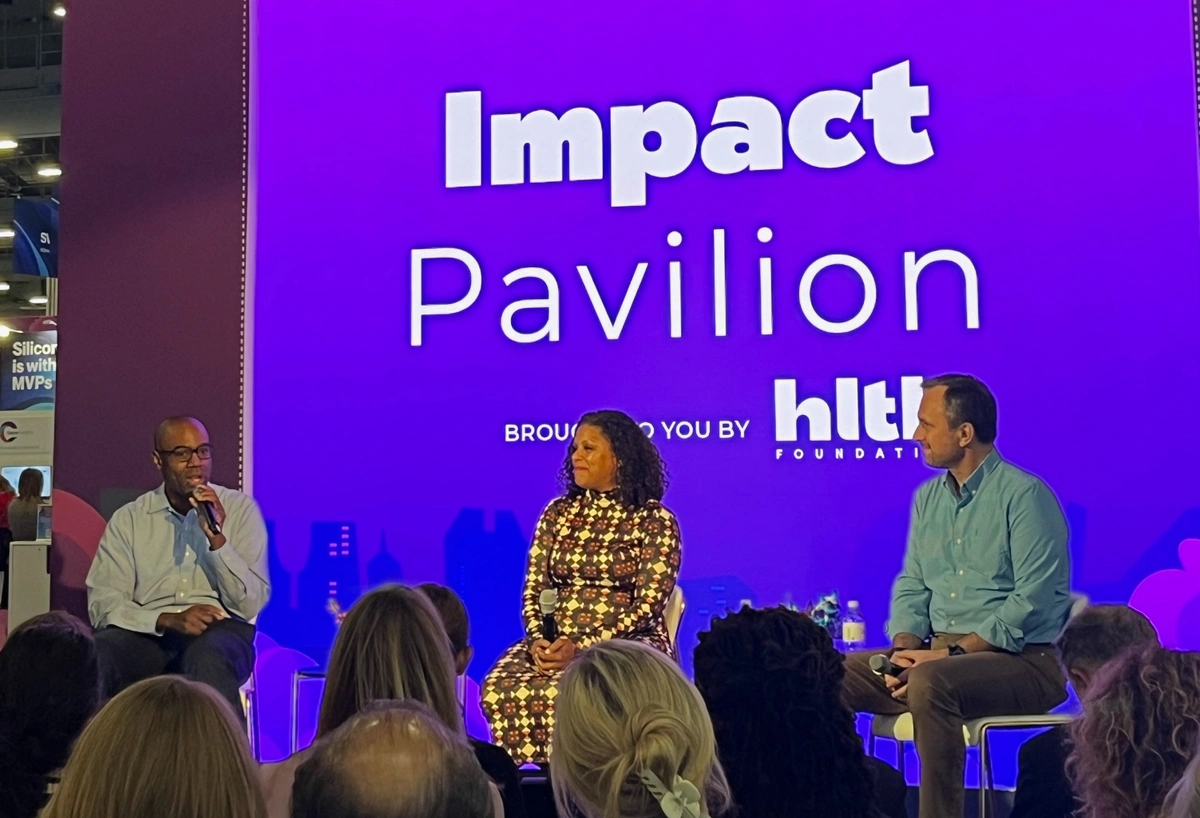
HLTH 2023, one of the most anticipated healthcare conferences of the year, was full of insights on healthcare innovation. From visionary speakers, innovators, and experts, conversations throughout the four-day conference centered around exploring, shaping, and building the future of healthcare. While there were over 100 different panels and breakouts to attend, here are some key takeaways captured from this year’s event.
Medicaid gains greater focus
This year, Medicaid took center stage at HLTH. Some of the most interesting conversations centered on public calls for innovation in Medicaid. In past years at HLTH, there has been agreement on the need to enhance care and equity in Medicaid populations. But this year, conference speakers used the conference platform to make the business case for building up Medicaid.
It’s widely accepted that low reimbursement rates and high costs of care typically squeeze Medicaid profit margins thin. But successful operators in this space now see that the real margin upside is created when people access value-based care that also includes preventive services and the ability to access care more frequently. Panel participants also encouraged innovators to look for opportunities to create long-term value, rather than trying to reconfigure outdated policies.
Remote care grows in reach
Remote care was a major focus at HLTH 2023, as the COVID-19 pandemic accelerated its adoption. Speakers and attendees discussed the benefits of remote care, such as increased access to care and convenience for patients. They also discussed challenges that need to be addressed, such as reimbursement and disparities in access to technology. Plenty of innovators continue to reshape the remote care space.
Through remote options, providers can deliver low-cost, episodic wound care via medical devices to serve as alternatives to point-of-care imaging services. Additionally, physical therapy monitoring technologies are now available that leverage AI to help providers measure functional capabilities. While there are uncertainties about reimbursement landscapes and the future of telemedicine policies, more companies are helping to deliver critical care in remote areas and through remote devices.
AI not an immediate take among payers
During the Payer Insights programs, payers tempered the excitement around artificial intelligence (AI) and algorithms. They mentioned their dissatisfaction with both the adequacy of data collected and the quality of that data from an equity and representation standpoint. Because these same biased datasets feed AI algorithms, payers cautioned that new AI care delivery models could make care less accessible for their members.
Digital health is transforming the healthcare experience
The conference highlighted the rapid transformation of healthcare through digitation in the patient experience, provider processes, and even extending into pharmaceuticals. Experts discussed how digital health tools are improving patient care, presenting new treatment avenues, and streamlining processes.
While many were quick to declare that digital health is not intended to be a replacement for in-person care, it’s clear that it is quickly becoming an accompaniment to the traditional healthcare experience, allowing for patients and providers to establish a technology connection to maintain access to care services and updates.
Mental health is gaining mainstream traction
Over the past few years, discussions around mental health services continue to be on the rise, and HLTH 2023 was no different. There were more panels, discussions, and conversations that included mental health services than ever before. As the stigma around mental health care continues to diminish, there is greater attention and awareness being placed on caring for patients physical and mental health. Discussions explored various strategies for improving mental health services, ways providers are working to address patients’ whole health needs, and how major organizations are working with advocacy groups to help change the conversation and perceptions around mental health needs.
Health equity impacts us all
Finally, the topic heard most across four days of conversation and presentations was that of health equity. As more separation grows between patient groups and their need for critical care, experts addressed issues related to these healthcare disparities and tangential elements that impact care such as social determinants of health, pay inequality, environmental issues, and governmental regulations. Numerous companies pledged their commitments to improving health equity, through internal programs and alliance with advocacy groups, as well as changes in government programs.
HLTH 2023 was a remarkable event that showcased the innovative spirit of the industry. As healthcare continues to evolve, conferences like this are essential for fostering collaboration and driving positive change. The lessons and discussions from this conference will undoubtedly influence the future of healthcare in the years to come.

